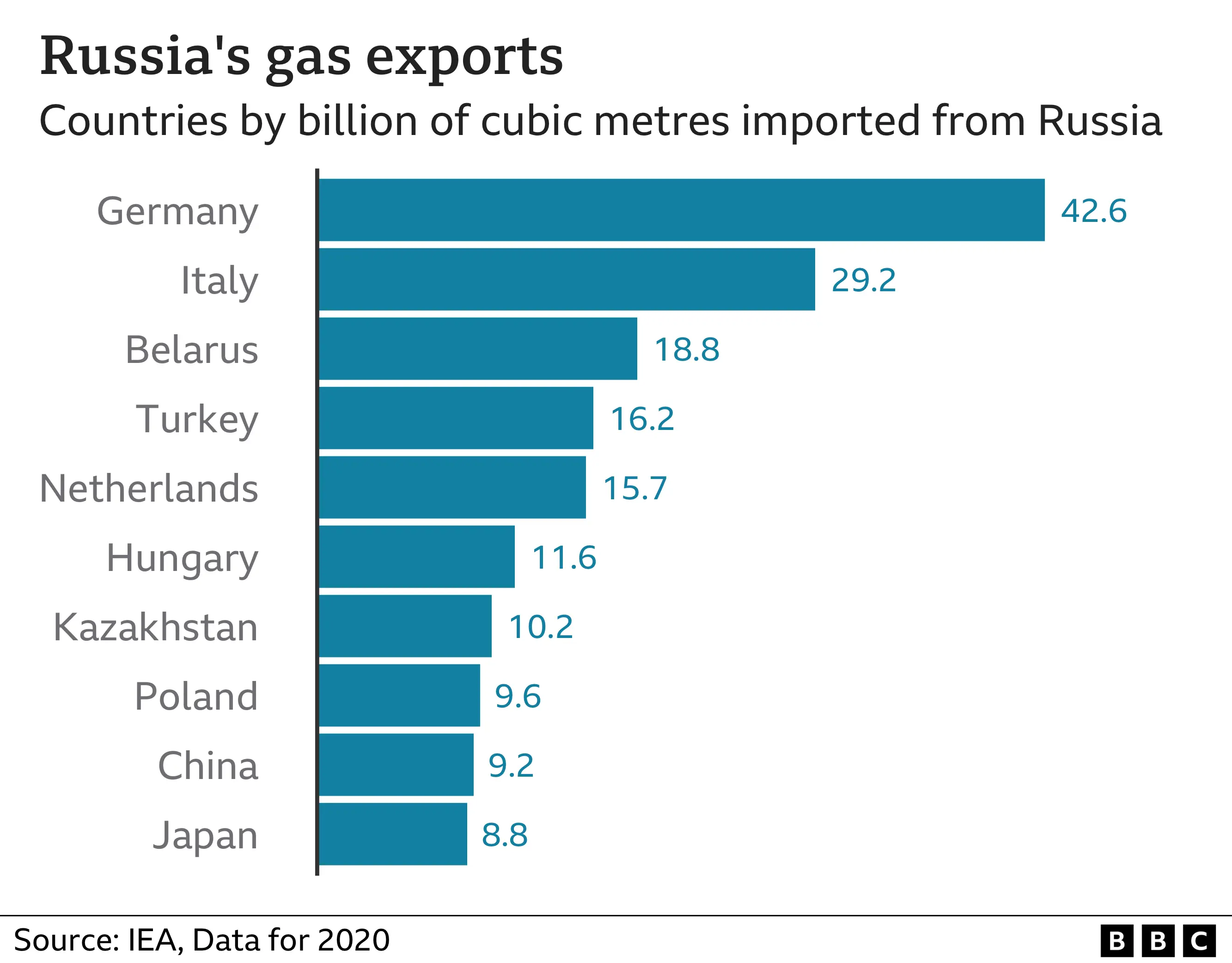EU energy rationing can't be ruled out, Shell warns
 Getty Images
Getty ImagesRationing of energy in Europe cannot be ruled out, the boss of energy giant Shell has warned, due to worries over the supply of gas from Russia.
Speaking at an energy conference, Ben van Beurden said a "really tough winter in Europe" was ahead, with energy prices set to see "significant" rises.
Energy prices jumped earlier this year after Russia invaded Ukraine.
Russia has also been accused of using gas "as a weapon" by limiting supplies in response to EU sanctions.
Last month, Germany moved closer to gas rationing after it triggered the "alarm" stage of an emergency gas plan to deal with shortages, amidst fears of tighter supplies. The highest level of the plan would allow the state to intervene and prioritise energy allocation to households and emergency services.
This week, Russian natural gas supplies to Germany via the Baltic Sea pipeline Nord Stream 1 were halted for 10 days of annual maintenance work, but there are fears that supplies may not restart.
Italy has also reported shortages in gas supply, with Italian energy giant Eni revealing last month it was only getting half of the 63 million cubic metres per day it had requested from Gazprom.
Speaking at the Aurora Spring Conference in Oxford, Mr van Beurden said: "It will be a really tough winter in Europe.
"Some countries will fare better than others but we will all be facing a very significant escalation in energy prices."
The EU is heavily reliant on Russian fossil fuels, with Russia supplying 40% of its natural gas. It also supplies 27% of the EU's imported oil, receiving around €400bn ($430bn; £341bn) a year in return.
The bloc has made moves to wean itself off Russian fossil fuels in response to war Ukraine, banning most oil imports by the end of 2022. It has committed to reducing gas imports but it's proved harder to agree further measures, such as an outright ban.

Member states have been been trying to store gas during the summer ahead of higher winter demand for fuel, but Russia's latest moves to reduce supply have deepened concerns the continent may struggle to build up sufficient reserves.
Europe's gas stocks are 62.6% full and there are fears that meeting the target of at least 80% for winter will be difficult.
Several countries, such as Poland, Bulgaria, Finland, Denmark and the Netherlands had their Russian gas deliveries suspended after they refused a Russian demand to pay in roubles.
The UK imports less than 5% of its natural gas from Russia, but is reliant on Norway for a third of supplies.
There are concerns that if Russia cuts supplies to the European Union further, or the bloc boycotts purchasing gas, then competition for supplies would increase.
So while the UK would not be as badly hit by supply disruption as the EU, it would be affected by prices rising in the global markets as demand increases.
Earlier this week, the head of the UK's energy watchdog, Ofgem, warned that domestic energy bills would rise faster this winter than previously forecast.
One industry analyst has predicted a rise of more than £1,200 a year to UK domestic bills in October. Cornwall Insight said that the typical domestic customer was likely to pay £3,244 a year from October, then £3,363 a year from January.
The government is in talks with energy firm Centrica about re-opening a giant gas storage facility in case European supplies from Russia are cut off.
